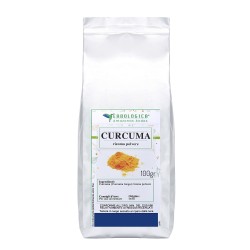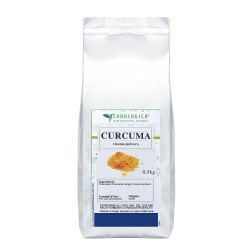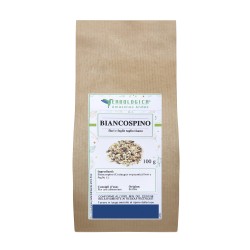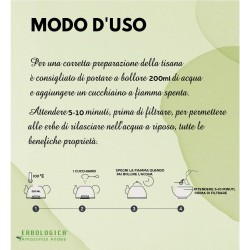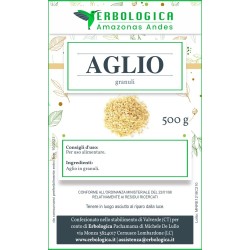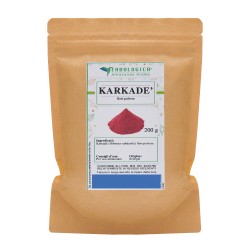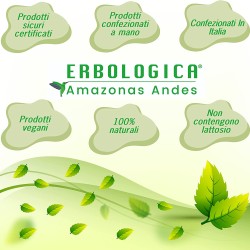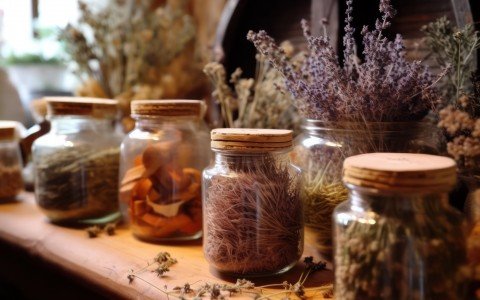
Erbe medicinali che aiutano a controllare l'ipertensione
Scopri i rimedi naturali a base di erbe medicinali per controllare l'ipertensione.
L'ipertensione, comunemente conosciuta come pressione alta, colpisce milioni di persone in tutto il mondo.
Sebbene esistano farmaci prescritti per trattare questa condizione, molte persone cercano alternative naturali per gestire la loro pressione sanguigna.
Le erbe medicinali possono essere una soluzione interessante, in quanto offrono benefici terapeutici senza gli effetti collaterali di alcuni farmaci.
In questo articolo, esploreremo 5 erbe medicinali che sono state studiate per il loro potenziale nel contribuire al controllo dell'ipertensione.
Scoprirai quali erbe includere nella tua dieta, come usarle e come possono aiutarti a mantenere sotto controllo la tua pressione sanguigna.
Se stai cercando un approccio naturale per gestire la tua pressione alta, queste erbe medicinali potrebbero essere la risposta che stai cercando.
Sei pronto per scoprirle?
Continua a leggere.
Comprensione dell'ipertensione e il suo impatto sulla salute
L'ipertensione è una condizione in cui la pressione del sangue nelle arterie è costantemente alta.
Questo può mettere a rischio la salute delle arterie e degli organi vitali come il cuore, i reni e il cervello.
L'ipertensione può essere causata da diversi fattori, tra cui una dieta ricca di sale, l'obesità, la mancanza di attività fisica, lo stress e la predisposizione genetica.
È importante rilevare e controllare l'ipertensione in modo tempestivo per prevenire complicazioni gravi come infarti, ictus e insufficienza renale.
La maggior parte delle persone affette da ipertensione viene trattata con farmaci prescritti, come diuretici, beta-bloccanti, ACE inibitori e calcio-antagonisti.
Tuttavia, questi farmaci possono avere effetti collaterali indesiderati come affaticamento, vertigini, problemi di stomaco e problemi sessuali.
Pertanto, molte persone cercano alternative naturali per controllare la loro pressione sanguigna senza gli effetti collaterali dei farmaci convenzionali.
Limitazioni dei trattamenti convenzionali dell'ipertensione
Nonostante l'efficacia dei farmaci prescritti nel controllare l'ipertensione, ci sono alcune limitazioni associate a essi.
Innanzitutto, i farmaci possono essere costosi e richiedono una prescrizione medica.
Questo può rendere difficile l'accesso a trattamenti adeguati per coloro che non possono permettersi le spese mediche.
Inoltre, alcuni farmaci possono causare effetti collaterali indesiderati, come già menzionato in precedenza, che possono influire sulla qualità della vita delle persone che li assumono.
Inoltre, i farmaci prescritti spesso trattano solo i sintomi dell'ipertensione senza affrontare le cause sottostanti.
Questo può portare a una dipendenza dai farmaci a lungo termine, senza affrontare le radici del problema.
Pertanto, molte persone cercano soluzioni naturali che possano affrontare le cause sottostanti dell'ipertensione e migliorare la salute generale.
Introduzione alle erbe medicinali per l'ipertensione
Sono state utilizzate da secoli per trattare una varietà di condizioni, compresa l'ipertensione.
Molte di queste erbe sono state oggetto di studi scientifici che hanno dimostrato il loro potenziale nel controllare la pressione sanguigna.
Sebbene non sostituiscano i farmaci prescritti, possono essere utilizzate come complemento nel trattamento dell'ipertensione, sempre sotto la supervisione di un medico.
Nel seguente articolo, esploreremo 5 erbe medicinali che sono state studiate per il loro potenziale nel contribuire al controllo dell'ipertensione.
Scoprirai come queste erbe possono essere utilizzate, quali benefici terapeutici offrono e le precauzioni da prendere quando si utilizzano.
Prima di iniziare l'uso di qualsiasi erba medicinale, è importante consultare il proprio medico o erborista per assicurarsi che sia sicuro e appropriato per la propria situazione medica.
Rimedio a base di erbe n. 1: biancospino
Il biancospino è un'erba medicinale ampiamente utilizzata per il trattamento dell'ipertensione.
È noto per le sue proprietà vasodilatatorie, che aiutano a rilassare i vasi sanguigni e a ridurre la pressione arteriosa.
Il biancospino contiene composti come flavonoidi e procianidine, che hanno dimostrato di migliorare la circolazione sanguigna e ridurre la pressione sanguigna.
Per utilizzare il biancospino come rimedio per l'ipertensione, puoi preparare un infuso di erbe con i fiori e le foglie essiccate.
Aggiungi una o due cucchiaini di biancospino essiccato in una tazza di acqua calda e lascia in infusione per 10-15 minuti.
Filtra l'infuso e bevi due volte al giorno.
È importante notare che il biancospino può interagire con alcuni farmaci, quindi consulta il tuo medico prima di utilizzarlo.
Rimedio a base di erbe n. 2: aglio
L'aglio è una delle erbe medicinali più popolari ed è noto per i suoi numerosi benefici per la salute, tra cui il controllo della pressione sanguigna.
L'aglio contiene composti come l'allicina, che può aiutare a rilassare i vasi sanguigni e a ridurre la pressione arteriosa.
L'aglio può anche migliorare la circolazione sanguigna e ridurre i livelli di colesterolo nel sangue.
Per utilizzare l'aglio come rimedio per l'ipertensione, puoi consumare aglio fresco o utilizzarlo come integratore alimentare.
Puoi aggiungere aglio fresco alle tue preparazioni culinarie o assumere integratori di aglio sotto forma di capsule o compresse.
Tuttavia, è importante notare che l'aglio può interagire con alcuni farmaci, quindi consulta il tuo medico prima di utilizzarlo.
Rimedio a base di erbe n. 3: ibisco
L'ibisco è un'altra erba medicinale che può essere utilizzata per il controllo dell'ipertensione.
Contiene composti come gli antociani, che possono aiutare a ridurre la pressione sanguigna e migliorare la funzione cardiovascolare.
L'ibisco può anche avere effetti diuretici, che aiutano a ridurre il volume di liquidi nel corpo e a ridurre la pressione sanguigna.
Puoi utilizzare l'ibisco per preparare un infuso di erbe.
Aggiungi un cucchiaio di fiori di ibisco essiccati in una tazza di acqua calda e lascia in infusione per 5-10 minuti.
Filtra l'infuso e bevi due volte al giorno.
Tuttavia, è importante notare che l'ibisco può interagire con alcuni farmaci, quindi consulta il tuo medico prima di utilizzarlo.
Rimedio a base di erbe n. 4: estratto di foglia d'olivo
L'estratto di foglia d'olivo è stato studiato per il suo potenziale nel controllare l'ipertensione.
Contiene composti come l'oleuropeina, che può aiutare a rilassare i vasi sanguigni e a ridurre la pressione arteriosa.
L'estratto di foglia d'olivo può anche avere proprietà antiossidanti e anti-infiammatorie, che possono contribuire al miglioramento della salute cardiovascolare.
Puoi assumere l'estratto di foglia d'olivo sotto forma di integratore alimentare.
Segui le istruzioni sulla confezione per la dose corretta.
Come sempre, consulta il tuo medico prima di utilizzare l'estratto di foglia d'olivo, in quanto può interagire con alcuni farmaci.
Rimedio a base di erbe n. 5: curcuma
La curcuma è una spezia ampiamente utilizzata in cucina e conosciuta per i suoi numerosi benefici per la salute.
Contiene un composto chiamato curcumina, che ha dimostrato di avere effetti antinfiammatori e antiossidanti.
La curcuma può aiutare a ridurre l'infiammazione e a migliorare la funzione cardiovascolare, contribuendo così al controllo dell'ipertensione.
Puoi utilizzare la curcuma per preparare il tè o aggiungerla alle tue preparazioni culinarie.
Puoi anche assumere integratori di curcuma sotto forma di capsule o compresse.
Tuttavia, è importante notare che la curcuma può interagire con alcuni farmaci, quindi consulta il tuo medico prima di utilizzarla.
Come integrare le erbe medicinali nel tuo piano di gestione dell'ipertensione
Prima di integrare le erbe medicinali nel tuo piano di gestione dell'ipertensione, è importante consultare il tuo medico.
Il tuo medico può valutare la tua situazione medica e consigliarti sulle dosi appropriate e sulle precauzioni da prendere.
Inoltre, è importante essere consapevoli che le erbe medicinali non sostituiscono i farmaci prescritti, ma possono essere utilizzate come complemento nel trattamento dell'ipertensione.
Quando si utilizzano erbe medicinali, è importante seguire le istruzioni sulla confezione per la dose corretta.
Inoltre, tieni presente che le erbe medicinali possono richiedere tempo per mostrare risultati, quindi è importante essere costanti nell'uso.
Monitora regolarmente la tua pressione sanguigna e informa il tuo medico dei cambiamenti che osservi.
Conclusioni: Sfruttare il potere della natura per un migliore controllo della pressione sanguigna
Possono offrire un approccio naturale per il controllo dell'ipertensione.
Sono state studiate per il loro potenziale nel ridurre la pressione sanguigna e migliorare la salute cardiovascolare.
Tuttavia, è importante ricordare che le erbe medicinali non sostituiscono i farmaci prescritti e devono essere utilizzate come complemento nel trattamento dell'ipertensione.
Se stai considerando l'uso di erbe medicinali per controllare la tua pressione sanguigna, consulta il tuo medico per ottenere consigli personalizzati.
Il tuo erborista può valutare la tua situazione medica e consigliarti sulle erbe che possono essere sicure e appropriate per te.
Con la giusta combinazione di farmaci prescritti, cambiamenti dello stile di vita e integrazione di erbe medicinali, puoi lavorare verso un migliore controllo della tua pressione sanguigna e una migliore salute generale.


